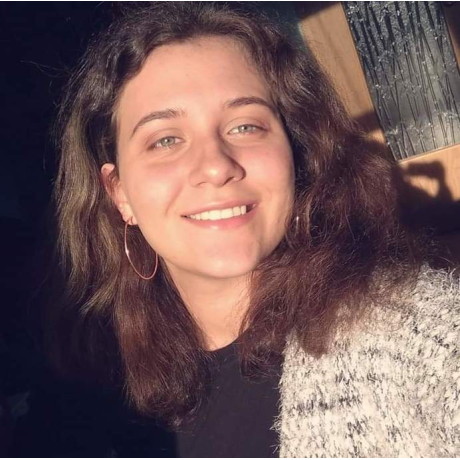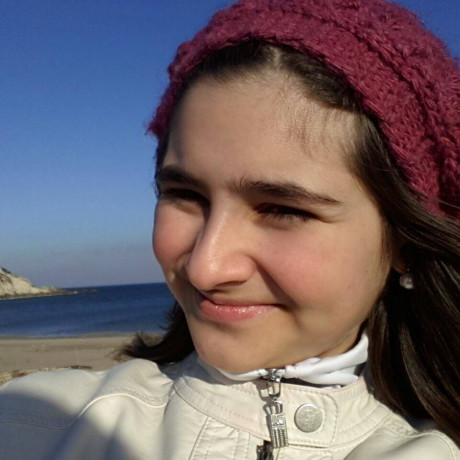The works of 28 young people with Bulgarian roots, currently living abroad, have been collected in a new book called “A Letter to Bulgaria from the Young Bulgarians around the world”. The project coordinator is the “Chance for the children and the nature of Bulgaria” foundation. Liliyana Slavova, chairperson of the foundation, tells for Radio Bulgaria the story of the messages intertwined with feelings towards their homeland of the young Bulgarians abroad.
“The book is a product of the time-tested National literary competition entitled “Children too can conquer worlds. Show that you can!” Following the substantial interest towards the 2019 topic – “My Letter to Bulgaria” – and the respective response received, this year we decided to turn to the children from outside the borders of Bulgaria and take a peek at their worldviews.
Their messages were simultaneously different and alike – of love, hope, nostalgia, bidding farewell and words of reproach. Аll of them and many others can be discerned in our new book, for it is an unconventional mirror of these young people’s feelings.”
The most active involvement was registered from children of Bulgarian origin, living in Spain, Italy, Turkey, Germany, France, Norway and Slovakia. The volume with their texts comes as a sequel to the first edition of “My Letter to Bulgaria” published last year.
How does the notion of Bulgaria change with time and from afar?
“This project is not a straightforward gathering of the most well-written texts into a single edition. This year we studied the current attitudes of children living out of the country towards Bulgaria. These are, to a significant extent, formed by the parents’ attitudes and their personal reasons for leaving the country,” explains Liliyana Slavova. “I stand assured that we, the adults, are a great influence on the love and regard of our children towards our country. They reflect our own moral values and behaviour. Especially worrisome is the fact that we do everything we can to guide our children, through good education, towards a future life outside of Bulgaria. Patriotism is not expressed by words but through actions. One loves one’s homeland not because it is the most marvellous place on earth, but because of being born there, of having a home, a family and roots there. Why are we not ready to give the best of ourselves to make Bulgaria a better, more appealing place for our children? We owe it to them. We form neglect towards everything related to Bulgaria, aiding the idea that our children should leave. That is how their attitude towards Bulgaria is changed,” states Liliyana Slavova.
 The works of the young writers raise numerous questions – for instance, what does the fatherland mean for a person, what is he or she ready to do for it, and what does it mean for a person to disconnect from one’s roots and homeland… In the text of the 17-year-old Bogoslava Petrova from Germany, placed second in the competition, we read: “I want to live, travel and embrace everything openly. And then, I want always to return to you – the place where everything is so simple and so full of light that I do not need to try and describe it – home. Because home means love, and love could never become obsolete, or hackneyed to the bone.”
The works of the young writers raise numerous questions – for instance, what does the fatherland mean for a person, what is he or she ready to do for it, and what does it mean for a person to disconnect from one’s roots and homeland… In the text of the 17-year-old Bogoslava Petrova from Germany, placed second in the competition, we read: “I want to live, travel and embrace everything openly. And then, I want always to return to you – the place where everything is so simple and so full of light that I do not need to try and describe it – home. Because home means love, and love could never become obsolete, or hackneyed to the bone.”
 The topics of returning home and the love for Bulgaria can be found also in the text of the winner – the 18-year-old Ümmügül Chavdarova from Tekirdağ, Turkey: “I close my weary eyes and set off onto the secret pathway from Istanbul to Dobrudja. The journey is short – as much as a return. My hands, exhausted, reach boldly towards a gate well-known and suddenly my heart warms up – as though I find myself beside a fire on a frigid night.”
The topics of returning home and the love for Bulgaria can be found also in the text of the winner – the 18-year-old Ümmügül Chavdarova from Tekirdağ, Turkey: “I close my weary eyes and set off onto the secret pathway from Istanbul to Dobrudja. The journey is short – as much as a return. My hands, exhausted, reach boldly towards a gate well-known and suddenly my heart warms up – as though I find myself beside a fire on a frigid night.”
Reading valuable texts can turn whole views and worlds upside down,” concludes Liliyana Slavova from the foundation “Chance for the children and the nature of Bulgaria”:
“Our book is a metaphorical clock, with which we should synchronize our present and thus open our senses for the future. For me, it has to be a constant companion for people from all institutions, politicians, teachers and our entire society, because there is nothing more important than hearing young people’s voices and understanding them. From these texts, we can learn that children know that one finds and understands oneself the most when one opens up to other worlds and cultures. It is good and useful to travel, but it is always better to come back home.”
English version Boris Totchev
Photos: forbkids.org and private libraryThe eagerly-awaited Tulip Parade at the University Botanical Garden in Balchik is at its peak. This year’s parade includes more than 45,000 bulbs, and 27 varieties that are new to the Garden, among them Tulipa "Carnaval de Nice, which combines..
In 2024, Bulgaria has 15,737 foreign students, making up 8.6% of all current students in the country. By comparison, this share has doubled over the past decade. This data comes from NACID , updated annually in the Bulgarian University Ranking..
Divers will clean the seabed around the port of Sozopol today, reports BTA. "Since 2018, we have been doing the cleaning, completely voluntarily, with our own resources, with the idea of doing something useful for everyone," said Nayden Nedev, diving..
The prices of Easter goods are rising The Easter meal in the Balkan countries will be more expensive this year, BTA reports...
Residents and visitors to Sofia will have the opportunity to learn more about Bulgarian scientists working in Antarctica and their important role in the..

+359 2 9336 661
